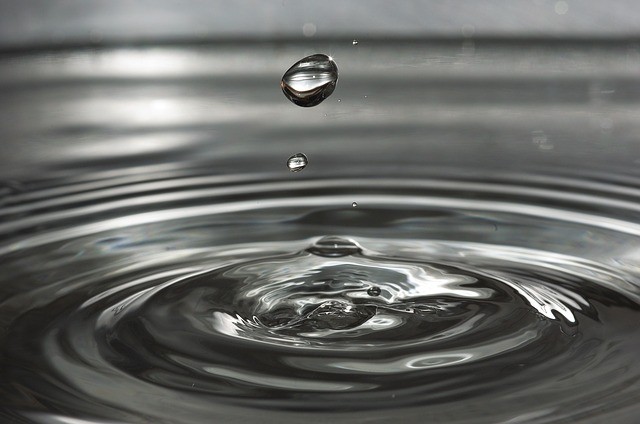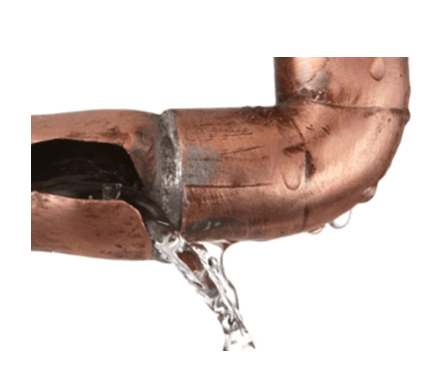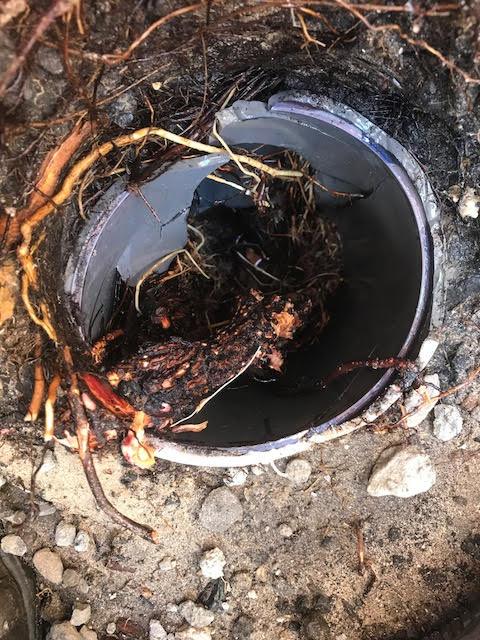Will my insurance cover plumbing leaks?
Ahhh… insurance. That wonderful topic that no one likes to talk about, and no one likes to think they will ever have to deal with. In reality, unfortunately, we will all likely have to deal with an insurance company at least once in our lives and it may just be in relation to water damage and plumbing issues.
With plumbing leaks, just like everything to do with insurance, there isn’t a straight ‘yes it is covered’ or ‘no it isn’t covered’ answer to water damage in your home. Every policy and provider is different, which means that every set of circumstances can be met with a different response. Additionally, just because your neighbour says that received a great deal from one company that covered their water damage, doesn't mean the same set of circumstances is applicable to your home.

It is therefore really really important (add another ‘really’ in there if you’d like) to read your Product Disclosure Statement from your insurance company super carefully, and also speak with your home insurance company directly to find out what’s actually covered. The more questions you ask the better - this way, if you become aware of something that you are unhappy with, you can switch policies or move to another provider before something actually happens. It is also important to ensure you write yourself comprehensive notes as to what your insurance company says, so if you need to use it later on, you can rely on them.
Now, after reading all that, you are probably thinking how boring is insurance talk and you’re right - it’s not exactly riveting stuff. That is why we have put together some important info to get you started (with some pictures!), however it is not to be used in replacement of any of the above suggestions. If you have any further questions, get in contact with your local insurance provider or have a chat with a plumber.
A few important definitions
To begin, we should probably define a few major terms that are used when it comes to plumbing leaks and insurance - water damage, gradual water damage and water damage clause.
What is water damage?
What damage can occur in a lot of different ways - whether it’s from a burst pipe, water overflow, water backup (such as a sewer) or storm/flood, as well as a sneaky small leak from one of the pipes in the walls or another undetectable water issue. With these in mind, there are generally two kinds of water damage - ‘sudden and accidental’ damage and ‘gradual’ water damage. Occurrences like burst pipes and storm/flood damage are usually classed as sudden and accidental damage (and are covered by insurance) whereas slow plumbing leaks are usually classed as gradual water damage (and not covered by insurance).
What is gradual water damage?
We kind of covered this above, but gradual water damage is just that - damage that occurs over time. It may start small, such as rotting or mould, however, it is generally visible (even if you don’t recognise it). Examples of gradual water damage can include :
- Leaking pipes
- Electrical wiring that is decaying/deteriorating
- Seepage that is coming through the foundations of your home
- Lack of repairs completed on your home
- Areas of your roof that are in visible need of repair

Occurrences such as the above aren’t usually covered by insurance, being one of the most common home emergencies, and any claim that is made may not be successful. This can be due to a water damage clause being found in a number of home and contents insurance guidelines (this is why it is super important to read your insurance policy from front to back!).
What is a ‘water damage clause’?
Finally, a water damage clause is a section in your insurance policy regarding water damage and your ability to place a claim following water damage to your home. It can state what kind of specific water damage you are covered for under your insurance policy, as well as what is excluded, such as flood due to your negligence or failure to maintain home repairs (e.g. gutters and roofing). Make sure you read this clause carefully!
So, what is (and isn’t) covered under your insurance?
Now, this brings us to the big question(s) - what is and isn’t covered under your insurance? We have put together a general overview of the top 7 plumbing problems and whether they are covered by insurance policies, however, take a look at your exact policy for more information :
Leak repairs
Locating where the leak is and repairing the damage caused by it is covered by some insurance providers, however, the cost associated with repairing a leaking or burst pipe generally isn’t covered. A limit may also be set by some insurance providers as to how much they will contribute towards an unknown leak e.g. $500.00.
Regular maintenance
If the damage would not have occurred if regular and/or reasonable maintenance had been completed, then it likely won’t be covered by insurance.
Gradual water damage
Usually, gradual water damage just isn’t covered by insurance policies. This especially includes a leaking or faulty shower recess/base, or wet areas that have not been properly maintained (such as seal and waterproof membrane maintenance).
If you couldn’t have reasonably known that the leak was there - such as inside a wall or under your house - some policies can cover this damage.
Structural damage
If structural issues have arisen due to gradual water damage, they likely aren’t covered under your insurance policy.
Tree root damage
If you find that a tree root has damaged some home plumbing, it is unlikely that your insurer will cover this.

Waterproof membranes
If the waterproof membrane has not been maintained properly, such as the ones located in walls and basements, insurance providers usually won’t cover the damages. To avoid this, have routine inspections of any waterproofed area regularly completed and all damp spots checked out quickly.
Roof damage
If the damage your roof has suffered could have been avoided by regular maintenance, then your insurance policy won’t usually cover the damage. Avoid this through regular roof checks, including gutters and downpipes, especially after a storm or any wild weather.
Water leakage signs and symptoms
To ensure you don’t get stuck in a situation where your insurance could have covered you, the following are the signs you need to keep an eye out for in and around your home for possible water leaks. It is best to call in a professional if you aren’t sure, as they will be able to use specific equipment to locate any issues and bring them to your attention. Being aware of what to look for, as well as completing regular maintenance, are the best ways to cover yourself!
Kitchen
- Pooling of water under your fridge or dishwasher, or near it
- Your kitchen cabinets are cracked, warped or discoloured
- Your walls, floors and/or benchtops are discoloured or look warped
Bathroom
- Your bathroom cabinets are cracked, warped or discoloured
- Your walls, floors and/or benchtops are discoloured or look warped
- There is water pooling under your vanity or around your toilet
- Your washing machine or laundry tub has water underneath it
- Your washing machine hoses or hose connections have cracks or are damaged
Laundry
- Your laundry cabinets are cracked, warped or discoloured
Garden
- Consistent wet patches or puddles in your garden
- Trees and/or bushes in a particular area appear to be growing a lot faster than the plants around them
- Your retaining walls appear to be moving and/or showing cracking
- Any paths and/or paved areas in your garden are showing cracks, and unusual holes keep popping up
- Your hot water system appears to have a lot of water surrounding it - remember though, if you have a storage hot water system this will often release some water through the pressure relief valve as part of its normal processes. Also, take a look at solar hot water systems and pool heating systems
Your whole house
- Your carpets smell musty or mouldy and tend to be damp
- You have mould growing in/on the floors, walls or ceiling of your house, especially near wet areas
- You have discolouration in/on the floors, walls or ceiling of your house, especially near wet areas
Water leakage test
So, you’ve seen a few signs and symptoms listed above (or maybe not, you just have a sneaky suspicion) and you want to know whether there is a leak in the mains water drain. What do you do? We have an easy little test that can help you figure it out - you just need to ensure you leave the house for a few hours (or do it when no one needs to use the water in your home for a little while!) :
- Go around your home, both inside and outside, and turn off all your taps (yes, every single one).
- Once everything is off (and double-check, just to make sure!), head out to your water meter - it is usually at the front of your property, near the nature strip - and take a reading. Make sure you also record where all the dials are as well as any numbers if your meter has any. For ease, taking a photo on your phone camera may be best.
- Now, you wait! Don’t use the water in your home for at least a few hours - the longer the better.
- Once you have waited for at least a few hours, head back out to your water meter and see what it says - has it changed? Again, take note of all the dials and any numbers showing on your water meter. Take another photo if you need to, to compare.
If you take a look at the two readings and find they are not the same (seeing as though the water has been off, they should be pretty much identical) it is a possibility that you have a leak somewhere, so give your local plumber a call ASAP. They will be able to locate the leak and fix it as soon as possible, to avoid large water bills and ensure that no damage has occurred (or continues to occur). The quicker you get these repairs done the better, as you will be in a better position financially, as well as saving water and helping the environment!
Water leak prevention
The best way to avoid water leakage (and water damage) is prevention! The most effective form of prevention is regular maintenance completed by a professional - although this will not stop every problem available, it can prevent a vast range of issues as well as catch other problems before they arise. At Everyday Plumbing, we have seen firsthand the damage that can occur when you fail to have the plumbing in your home regularly maintained, so we highly recommend a maintenance plan be put into place for every house around. Give us a call on 0488 801 008 and we can give you some further information regarding what would be best for you and your circumstances now!

Your Sydney plumbing professionals
If you have any questions regarding water leaks in and around your home, or would like one of our plumbing specialists to attention to your property or workplace, give Everyday Plumbing a call on 0488 801 008 or complete an online job booking form today. We are experts when it comes to leak detection across Sydney, so get in contact now!
References :
Budget Direct (What home insurance covers): https://www.budgetdirect.com.au/home-contents-insurance/home-insurance-faqs/what-home-insurance-covers.html
NRMA (Home Insurance Claims): https://www.nrma.com.au/home-insurance-claims-am-i-covered
Mozo (Does my insurance cover that?): https://mozo.com.au/insurance/home-insurance/articles/does-home-insurance-cover-that-9-things-you-may-not-know-about-your-policy
Canstar (Water Damage Claim): https://www.canstar.com.au/home-insurance/make-water-damage-insurance-claim/
RAC (Home Insurance Claim FAQ): https://rac.com.au/faq/hl_ins_claim_pipes
* Disclaimer: All this information is general in nature and should be read in conjunction with other insurance references. Every insurance policy varies, therefore you must speak to your insurance provider to find out the right information applicable to your exact circumstances.
